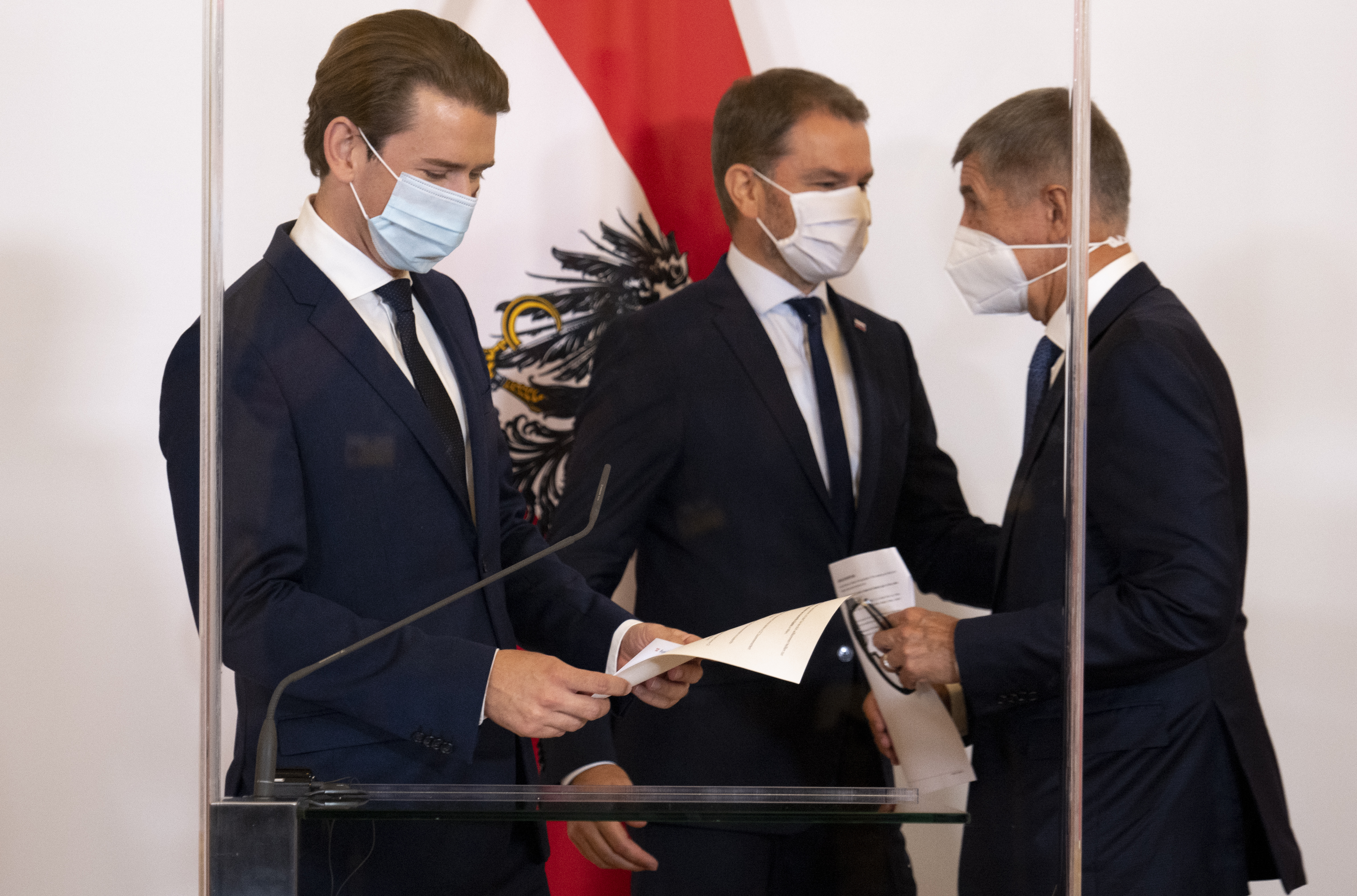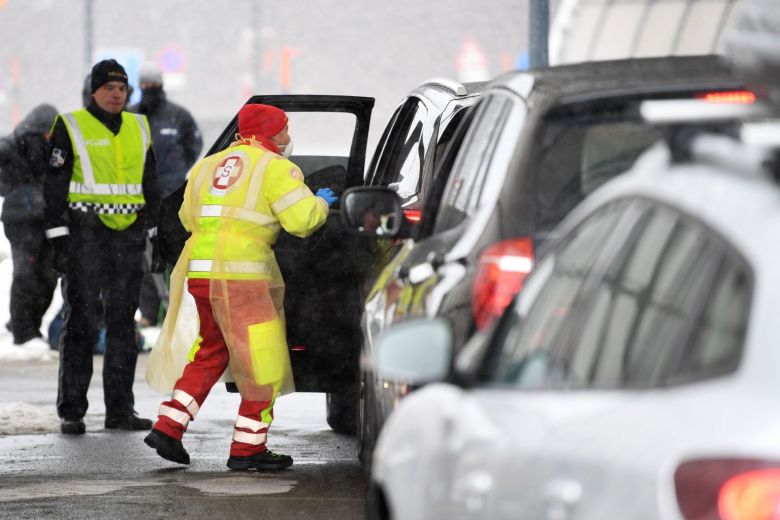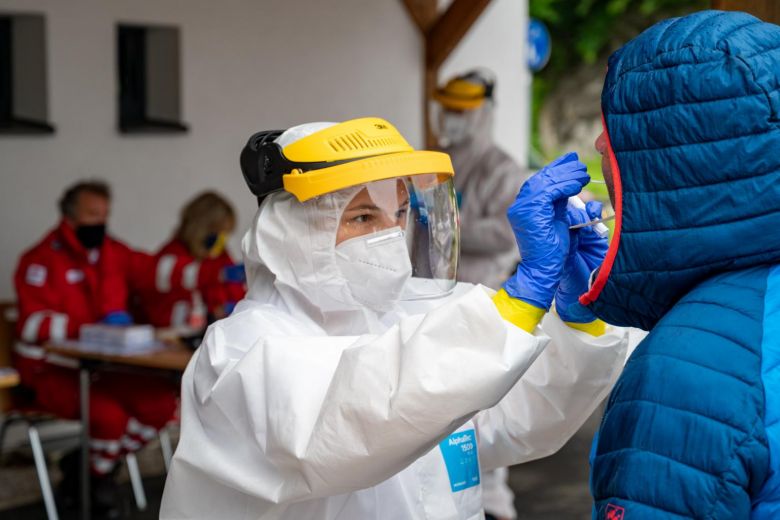
Austrian Chancellor Sebastian Kurz, Czech Prime Minister Andrej Babis and Slovak Prime Minister Igor Matovic attend a press conference in Vienna. /AFP
Austrian Chancellor Sebastian Kurz, Czech Prime Minister Andrej Babis and Slovak Prime Minister Igor Matovic attend a press conference in Vienna. /AFP
Austria is seeing the start of a second wave of coronavirus infections, the country's chancellor announced on Sunday, urging citizens to comply with reinforced rules to keep down new cases and suggesting that companies keep employees working from home if possible.
From Friday to Saturday the nation of 9 million reported 869 new cases, more than half in the capital of Vienna, the highest daily figure since late March.
Austria had a relatively successful first phase of the pandemic but has joined other European countries in seeing a rise in infections in recent weeks. Chancellor Sebastian Kurz announced that day that the government would reimpose measures such as mandatory mask-wearing in shops.
Kurz warned that the mark of 1,000 daily cases would be reached within a few days, showing that the country is experiencing the "beginning of a second wave."

A medic checks the temperature of a driver coming from Italy at the Brenner Pass border crossing between Italy and Austria. /Reuters
A medic checks the temperature of a driver coming from Italy at the Brenner Pass border crossing between Italy and Austria. /Reuters

About half of the new infections are in Vienna, the capital, but infections are rising across the country. /AFP
About half of the new infections are in Vienna, the capital, but infections are rising across the country. /AFP
"What we are experiencing at the moment is the beginning of the second wave in Austria," he said after a government meeting with employers and worker representatives in Vienna.
About half of the new infections are in Vienna, the capital, but infections are rising across the country, Kurz said. He noted most people are getting infected at family gatherings, birthday parties and other private events, but added "these infections are often taken to work."
He added that many companies have had "good experiences" with people working from home. "It makes sense if, where companies want to, where it works well and where experiences are positive, this is continued and expanded."
Kurz urged companies to upgrade their anti-virus safety protections at work. He said things should be back to normal next summer "but until then, autumn and winter will be very challenging."
Austria, which has about 8.9 million people, has recorded more than 33,000 infections and seen 750 virus-related deaths. Experts say all numbers in the pandemic are undercounts due to missed mild cases and limited testing.
(With input from agencies)